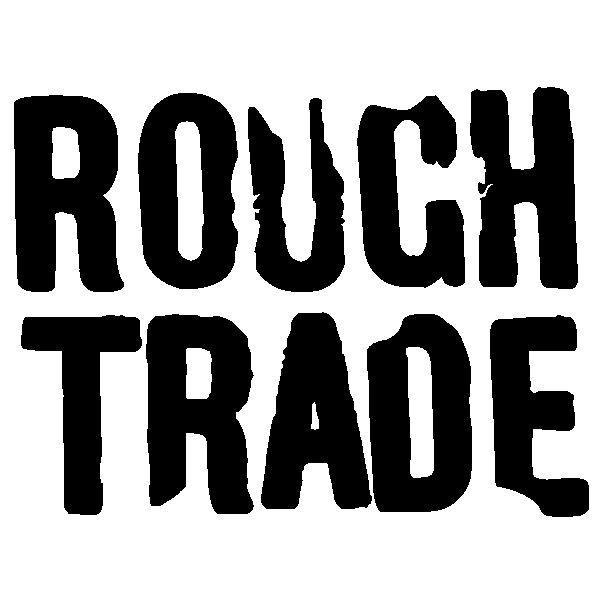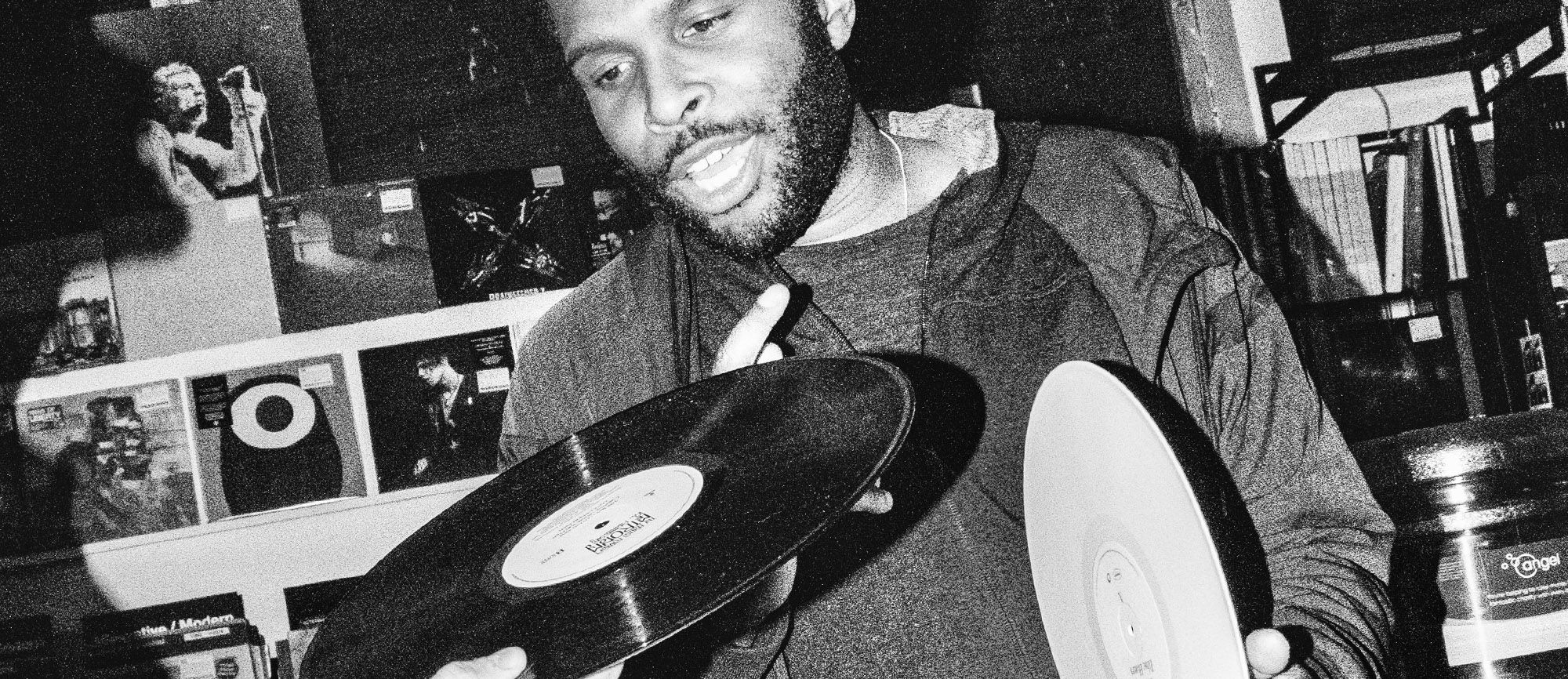Can You Recycle Vinyl Records?
For decades, vinyl enjoyed its reign as the most popular way to listen to music. But with the emergence of CDs and then digital media, it has since found itself in the hands of keen collectors or music enthusiasts who enjoy the medium’s unique warmth and vintage sound.
But what can you do with used or worn vinyl that avoids contributing to the almost 400 million tonnes of waste produced globally every year? In this guide, we answer the question ‘can vinyl records be recycled?’ and look at the options available to those looking to donate, up-cycle or even dispose of old vinyl records.
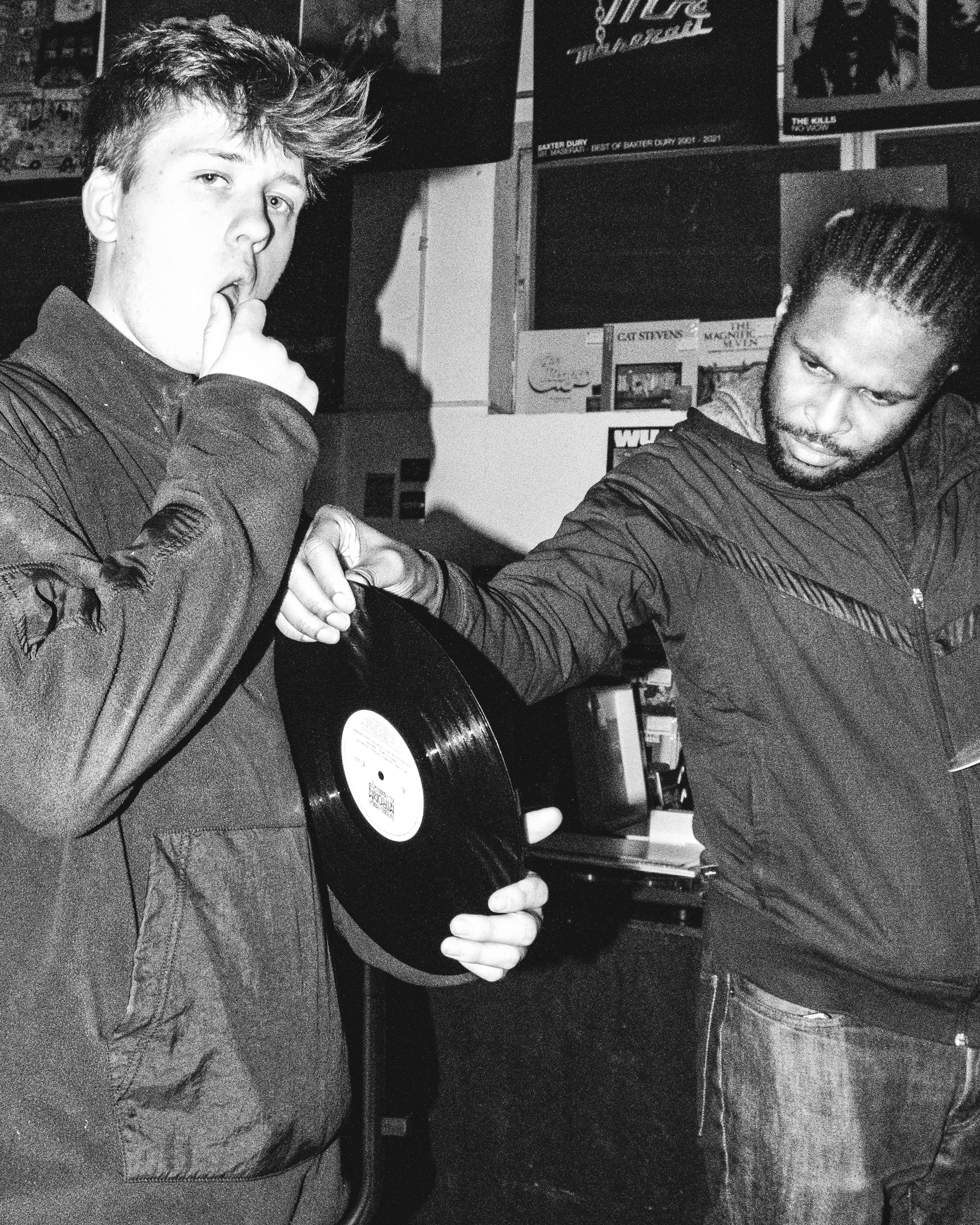
Can you recycle vinyl records?
In short, yes, vinyl can be recycled, just with a few extra steps compared with your everyday plastic packaging.
Vinyl is made from Polyvinyl Chloride (PVC) – a material formed out of many different plastics. Therefore there are best practices for how to recycle it. Still, before you consider recycling your damaged, worn or used vinyl, there may be a few more ways that you can dispose of your records that avoid releasing the harmful materials in PVC that are hard to break down and recycle. Burning vinyl results in the release of extremely toxic dioxins and furans that are highly dangerous if breathed in. Therefore, vinyl cannot be disposed of by usual means and needs to be dealt with more delicately.
How can you dispose of vinyl records?
Before recycling vinyl, there are a few other options that can be taken. It’s encouraged to try these methods first and only recycle if all else fails. Never throw your vinyl into a landfill.
Donating and selling used vinyl
If your vinyl is still in working condition, has been repaired or is a press that might be worth something, then selling it on online marketplaces or specialist second-hand music stores could be a good opportunity to make some money. If they don’t sell, then donating them to a charity shop works, too (old vinyl is one of the best sellers in charity shops) and maybe someone else might get additional use out of it.
Sell your pre-loved records to Rough Trade
If you’re looking to sell your vinyl instead of recycling it, Rough Trade buys used vinyl for a fair price. Our established Rough Trade Vintage range offers an excellent collection of quality used vinyl, spanning multiple genres and decades. We welcome submissions of collections via our website, it's simple and quick to do. You may even make enough money to replace your old favourites with one of our latest vinyl record releases.
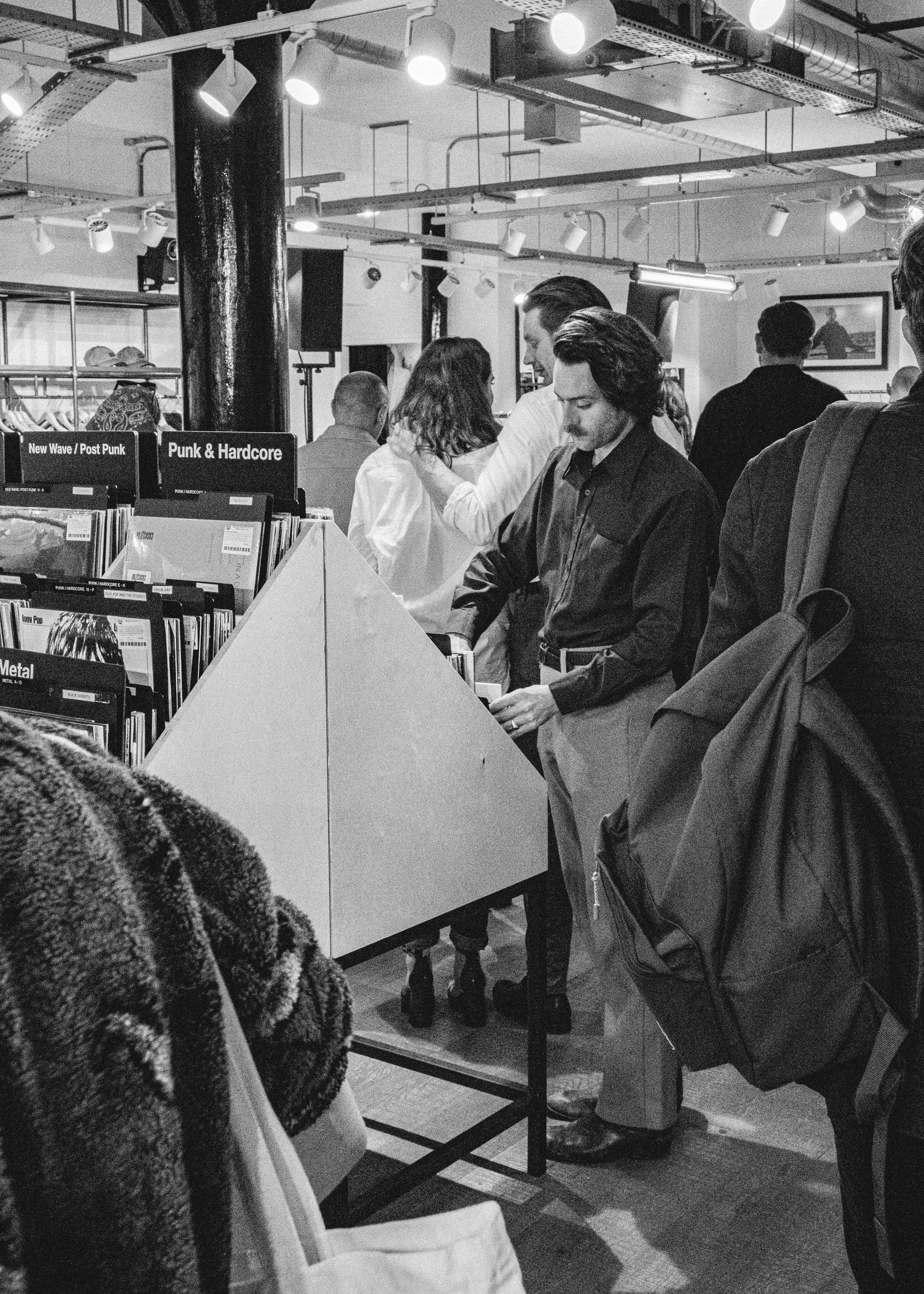
Upcycling vinyl records
Sometimes pre-loved vinyl records can be used for projects that lie outside of music. Consider getting creative and repurposing those old vinyl records. Up-cycling is the act of taking old or unwanted materials and turning them into something new with a higher value or alternative purpose. If your old vinyl records are past the point of repair, turning them into something new is an environmentally friendly option that could leave you with something new to enjoy. For example, if you’re a particularly talented artist or DIY specialist, you could take old, broken vinyl and turn them into placemats for tables. Alternatively, break them up to add to a modern art project – or if the visual integrity of the vinyl isn’t damaged, you could frame it and display it on a wall.
Repairing vinyl records
Sometimes vinyl is better repaired than recycled. A repaired vinyl record could be sold or kept to enjoy for years to come. Vinyl needs to be looked after, and most of the perceived damage to your vinyl could just be because it’s unclean. When cleaning vinyl, it’s important to use a small amount of lukewarm water and dry it with soft tissue or cloth. Being gentle is the key to avoiding nasty scratches or causing further damage.
Sometimes damage to vinyl can’t be solved with cleaning. In this case, the essential
component to repairing damaged vinyl with cracks or warping is to use a specialist vinyl repair kit. There are also vinyl repair machines available, but these can set you back around £300 on average - so, only consider this option if the record is worth more than the machine’s initial cost or holds sentimental value. Scratches are harder to repair than warped or unclean records. They may require a form of
DIY repair that may not necessarily result in the restoration of the record. One of these methods involves using a stylus to ‘re-cut’ the groove. Although, this method isn’t encouraged to the average person as it may cause the record to be damaged further, past the point of repair.
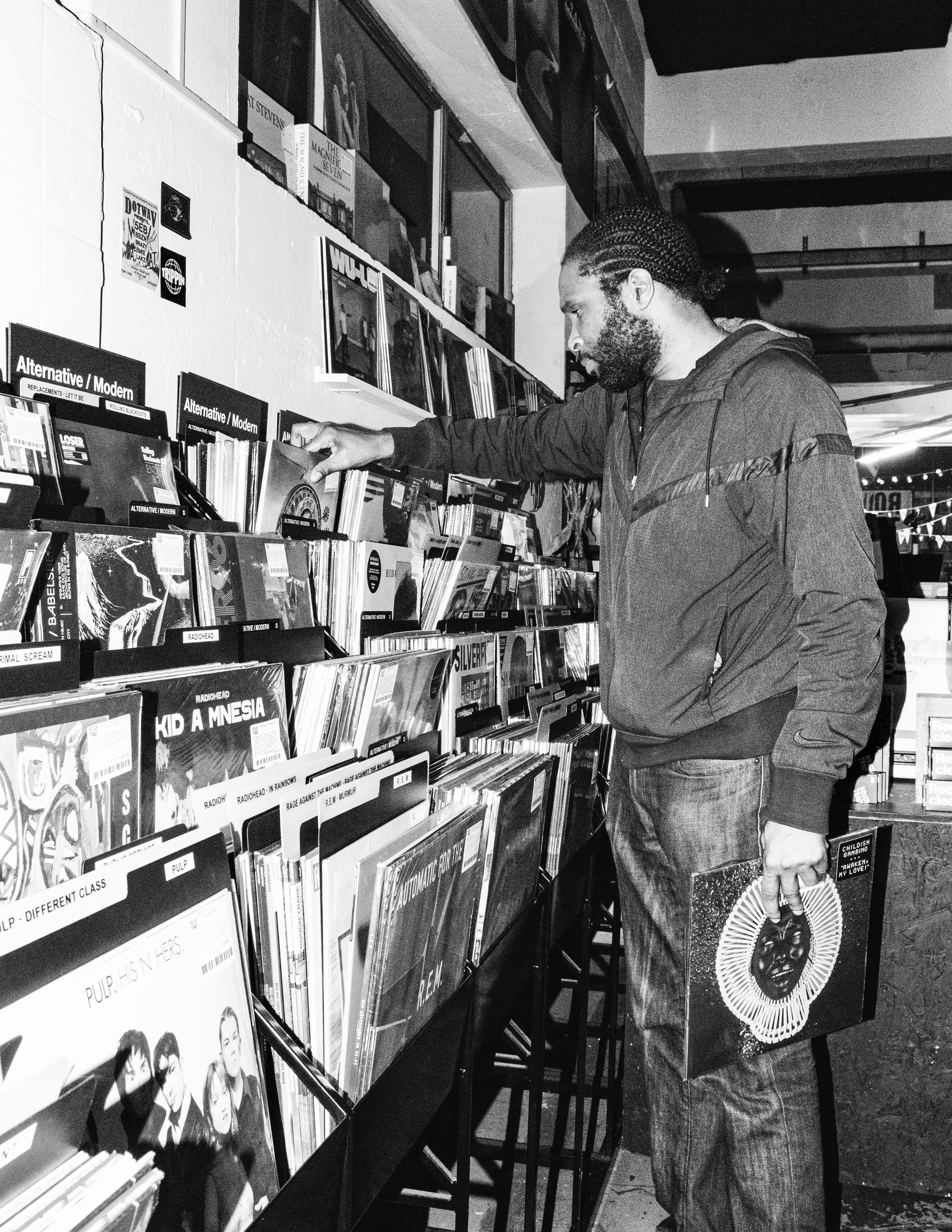
How to recycle vinyl records
Vinyl is non-biodegradable and therefore does not break down and decompose with time, which makes it a rather tricky material to recycle. This also means you cannot deposit vinyl at regular municipal recycling centres, and you cannot put it in a regular recycling bin. However, vinyl records can be recycled at specialist non-biodegradable centres (you’ll have to look for one close to you). While vinyl cannot be broken down completely, it can be broken down into small pellets and
used to create other items, often in the construction industry.
Remember, the process of recycling vinyl records is dangerous, as trace elements of metals like nickel and silver in vinyl release toxic gasses when burnt. Vinyl can also only be recycled up to eight times, and unfortunately, there is no perfect way
to break down vinyl records completely. So, consider finding a new home for your used or pre-loved records first and only consider recycling vinyl if all else fails.
Can you buy vinyl records made from recycled materials?
It’s also possible to recycle PVC and turn it into other records. And many online retailers sell recycled records and promote the recycling of old products to help reduce the amount of plastic that finds its way into our oceans. Between 75 and 199 million tons of plastic are currently floating in our oceans, and taking up
to 450 years to degrade means that we have a huge waste problem. We need to reduce the amount of waste we leave even if it’s just re-using old PVC to make
new vinyl. So, where you can, it’s always encouraged to buy recycled vinyl.
At Rough Trade, many of our vinyl records are made from recycled materials. Browse our latest releases, or for more tips on trading in or recycling your old vinyl, chat with our team in store or online at roughtrade.com.
